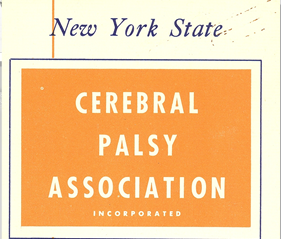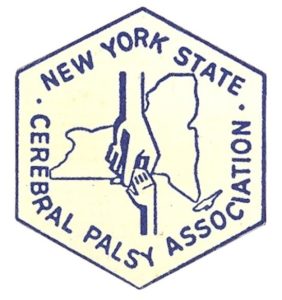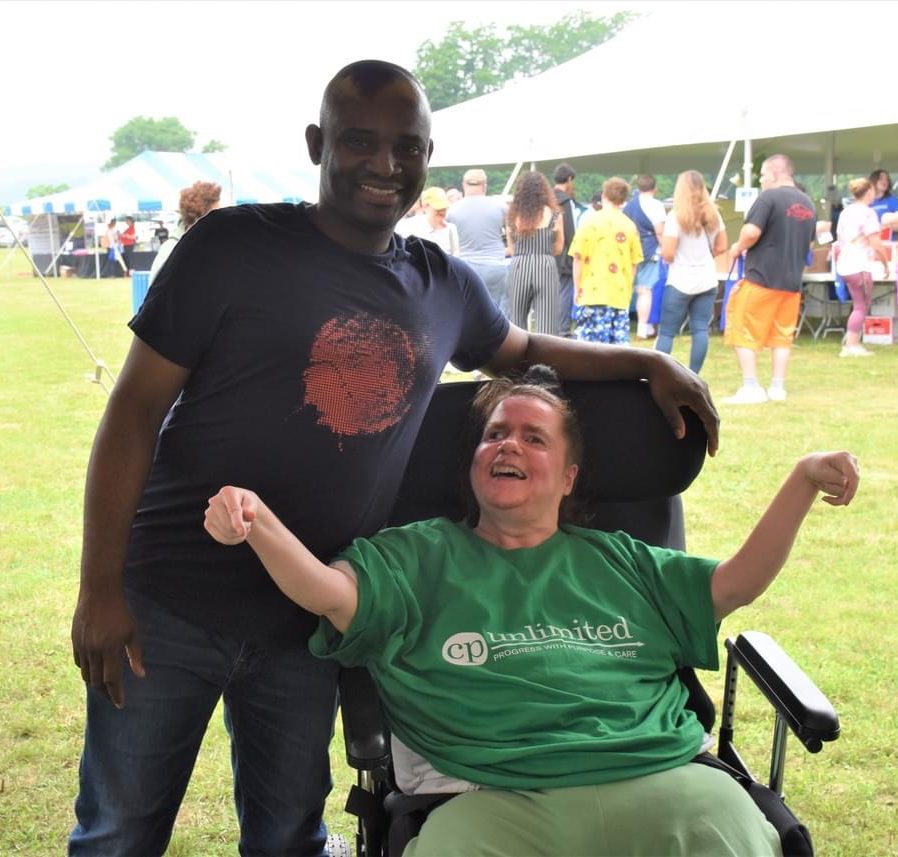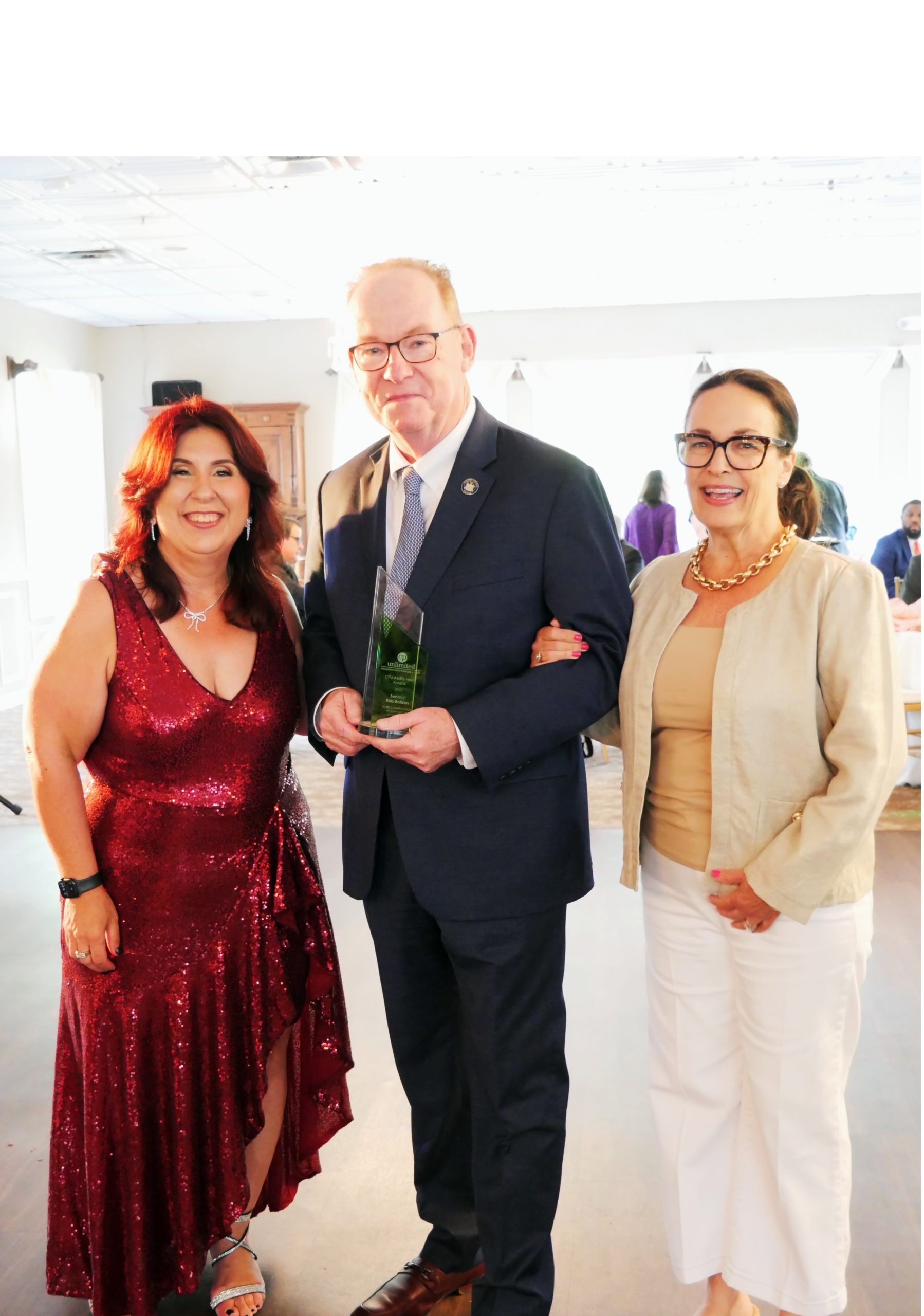Our Mission
Constructive Partnerships Unlimited promotes opportunities for people with intellectual and developmental disabilities to achieve fulfilling lives.
Our Vision
Our dedicated staff provide a wide range of direct services and supports that address the needs of each person receiving services. All CP Unlimited programs are provided within a warm, caring environment, using person-centered planning.
Our History
Creation and First Years
In 1946, several groups of parents of disabled children from around New York State formed an association to increase public awareness, sponsor parent and professional training, encourage research, and to engage in legislative advocacy for the development of services needed for their children.
 This loose group of committed local leaders later became known as Cerebral Palsy Associations of New York State (CP of NYS). Within a few years, the Association grew to include cerebral palsy treatment centers throughout New York State to help widen access to support services. All the founders were parents of children with cerebral palsy, and Larry Ross of Rochester became the organization’s first President. While the parent leadership was the dominant organizational development force in the early years, large numbers of enthusiastic and energetic volunteers were enlisted in affiliates throughout the state.
This loose group of committed local leaders later became known as Cerebral Palsy Associations of New York State (CP of NYS). Within a few years, the Association grew to include cerebral palsy treatment centers throughout New York State to help widen access to support services. All the founders were parents of children with cerebral palsy, and Larry Ross of Rochester became the organization’s first President. While the parent leadership was the dominant organizational development force in the early years, large numbers of enthusiastic and energetic volunteers were enlisted in affiliates throughout the state.
In the 1950’s, with the establishment of the Willowbrook State School in Staten Island and other State Schools, CP of NYS began to provide in-service training for staff of these facilities to ensure the quality of programs and care for persons with cerebral palsy and other developmental disabilities. At that point, CP of NYS already counted 24 affiliates under our banner, providing the only programs available to people with cerebral palsy.
In 1964 the New York State Elks Association and CP of NYS established the Home Service Program, designed to benefit children and adults with disabilities and their families. The Elks adopted the Home Service Program as its Major Project and have continued to fund it for over 60 years.
CP of NYS continued to grow and lead. The Agency was there beginning of Medicaid in 1965 helping Affiliates and the people they served gain access to government programs and government funding.
De-institutionalization
 In the early 1970s United Cerebral Palsy Associations of New York State was a small coordinating agency. There were seven staff members at the time, including the executive director. That would change dramatically during this fast-paced decade when the state association would become a key player in the deinstitutionalization process in the State of New York.
In the early 1970s United Cerebral Palsy Associations of New York State was a small coordinating agency. There were seven staff members at the time, including the executive director. That would change dramatically during this fast-paced decade when the state association would become a key player in the deinstitutionalization process in the State of New York.
In 1972, Geraldo Rivera aired a hidden-camera story on the decline and conditions at Willowbrook. After widespread outcry, the facility was shuttered and the manner of treating people with disabilities was forever changed. See our participation in the fiftieth anniversary event on of the airing of the program and the dedication of The Willowbrook Mile.
Willowbrook, in its current form, was closed and renamed the Staten Island Developmental Center. In 1977, CP of NYS was asked to take over seven buildings on the Willowbrook grounds to create community-based living opportunities for previous residents of Willowbrook and other State Developmental Centers, in collaboration with the newly formed New York State Office of Mental Retardation and Developmental Disabilities.
Hundreds of people were introduced to new homes in the five boroughs; prior to the transition to neighborhood venues, many areas had never successfully integrated persons with disabilities. All of that changed from this point forward, and the Agency- under the leadership of Bob Schonhorn- led this work bringing persons with I/DD to parts of the city previously isolated from this community. His philosophy was that anyone could be placed in residential settings with proper support. Many apartments that came under Agency ownership during this time are still in our portfolio today marking decades of consistent, stable support. Today, we support the largest cohort of former residents in CP settings throughout New York City and Hudson Valley.
The shift in care launched the era of “de-institutionalization” and CP of NYS remained a leader in the field. The Agency developed a training guide and mini-teams to work with former residents and to provide further staff support and education. This initiative marked the transformation of the organization from a State Association to a direct service provider.
This period also saw the introduction of an in-house transportation service. Founded as one of the first entities offering dependable transportation for our most vulnerable, it was eventually spun off to its own entity: Cerebral Palsy Transport.
Growth and State Expansion
 It only took until 1981 for the Agency to undergo another transformation. With the addition of Day Habilitation programs in local settings, CP of NYS transitioned to become a more expansive organization allowing for full-day support for the first time in our history. These borough supports included the former tennis center that became the Community Training Center on Staten Island, now known as the Cora Hoffman Center followed shortly by the Jerome Belson Center in the Bronx (now our West Farms Center) and the Linda Buch Gherardi Center in Brooklyn.
It only took until 1981 for the Agency to undergo another transformation. With the addition of Day Habilitation programs in local settings, CP of NYS transitioned to become a more expansive organization allowing for full-day support for the first time in our history. These borough supports included the former tennis center that became the Community Training Center on Staten Island, now known as the Cora Hoffman Center followed shortly by the Jerome Belson Center in the Bronx (now our West Farms Center) and the Linda Buch Gherardi Center in Brooklyn.
CP of NYS Affiliates throughout the State also advocated for the need for pre-school and early intervention services for young children with disabilities. For these children with disabilities, the Agency reopened the historic Camp Jened in 1980 which lasted through 2009.
Article 28 clinics also began to provide critical medical services and CP of NYS opened a new office in Albany to provide access to state government. The state association expanded services in the North Country and the mid-Hudson Valley, leading to the formation of two new Affiliates.
During this period, CPU opened many additional residential settings throughout Brooklyn, Manhattan and Queens while championing independence and community-based support. Intermediate care facilities were converted to Individual Residential Alternatives while CP of NYS advocated for more one- and two-bedroom settings for those who were more capable of taking care of themselves.
The 80’s closed with a new CP of NYS Executive Director in Dr. Michael Parker.
During the 1990s, CP of NYS continued to grow, providing programs for the individuals from Willowbrook and adding Transportation, Residential and Day Programs. Our Affiliates grew and changed as well. Affiliates instituted or expanded Early Intervention, Traumatic Brain Injury, Autism and other services. Residential programs grew quickly and Affiliates expanded community-based services.
The state’s annual conference was moved to Albany in the early 90’s and established a new and expanded format providing training and opportunities for Affiliate staff and Executive Directors.
In 2004, the organization chose Susan Constantino to lead the Agency. Among her innovations include the opening of many 24-hour homes for persons with disabilities, including a 14-bed home on Sharrotts Road on Staten Island for children, and a consolidation of many disparate providers into a true coalition of change-makers in the disability space. Her person-first philosophy was a pioneering spirit in the field and under her leadership CP of NYS affiliates continued to provide a wide variety of programs, including community-living opportunities, early-intervention, special-education, home service directors and family support services.
In 2016, we completed the transition of Catholic Charities’ IDD services into the Agency, augmenting the organization with many hundreds of employees, and several dozens of residential settings Day Hab programs, and other services in Brooklyn and Queens. This process was repeated with Jawonio, CP Nassau, and additional provider entities. Affiliates built and expanded clinics, and grew their pre-school, school age, Early Intervention, respite and family support programs.
At this same time, CP of NYS innovated a new partnership with Station MD to integrate telehealth services into residential settings. The addition resulted in a 30-plus percentage decline in ER visits, and led to environmental, fiscal, and time savings that are continually replicated each year.
By 2018, CP of NYS had evolved into a broad-based, multi-service organization serving persons with all types of intellectual and developmental disabilities. In June of that year, the Agency established its Hudson Valley Division to provide residential, day habilitation, and Article 16 clinical services to adults with intellectual and developmental disabilities throughout Putnam and Dutchess Counties. The organization now included Metro Services and Metro Community Health Centers (now all certified as Federally Qualified Health Centers) located in New York City, an Affiliate Services office in Albany, New York, and two dozen affiliates throughout New York State.
CP of NYS Becomes CP Unlimited
In 2019, the organization shifted its focus to New York City and beyond to better care for a growing population of adults with I/DD in need of support. Our suite of options featured enhanced community living, day programs, vocational and employment programs, medical and clinical services via our FQHCs, early intervention, educational, recreational, transport, and family support services.
With this pivot came a new name: Constructive Partnerships Unlimited (CPU).
It also meant a new address: 40 Rector Street, where we moved in January that year after several decades on West 34th street. A new location also allowed for dramatic improvements to the staff experience and the ability to grow into a full-floor space.
Given our roots, we remain closely associated with the CP State office in Albany as well as with our Affiliate co-agencies located throughout the State. We are also working with development partners to expand our offerings in all these essential areas and convene varied agencies to better offer integrated support for people with I/DD.
However, soon after this name change, COVID impacted New York City and the country. During that period, CPU team members rose to the immense challenge of maintaining top-level support during a time of uncertainty and limited resources. CPU partners Metro Community Health Centers, with locations in the Bronx, Staten Island, Manhattan, and Brooklyn helped vaccinate tens of thousands of New Yorkers. These oases of health (and co-located with CPU Day Habs in the Bronx and Staten Island) in many of our most underserved communities were lifelines of hope during this time.
Post-Pandemic
Emerging from COVID, the Agency redoubled its efforts on effective support and services, bringing on the transformative M.O.V.E. program for adults in Staten Island, and partnering with Google on Project Euphonia to inform smart home innovations for the disabled community.
In 2022, the organization received a significant grant from the Mother Cabrini Health Foundation to create a series of complimentary wheelchair repair and cleaning clinics in the five boroughs. This transformative service provided safe, sanitizing, and restoration supports that helped hundreds of people with I/DD, veterans, and seniors attain a renewed level of mobility and independence. Renewed grants have since expanded the program to the Hudson Valley and we are proud of the results which have included new wheelchairs for some of our most vulnerable and at-need individuals.
That same year, Joseph M. Pancari assumed the role of President & CEO of the Agency. His work has centered on diversification of funding, representation on the Board of Directors, and an overall expansion into new markers of service to help grow CP Unlimited into a multi-disciplinary support provider.
In 2023, CP Unlimited began a more earnest push to make our mark legislatively and advance services and support for persons with disability and professionals in the I/DD field. To that end, the agency leveraged both its internal assets and partner-building efforts to better make our mark, widen services, and increase funding for our community.
Traveling with Dignity Act: Introduced by NYS Senators Peter Harckham (D- District 40) and Rob Rolison (R-District 41) at CP Unlimited’s Hudson Valley affiliate in October 2023, the bill mandates the installation of height-adjustable adult changing facilities at venues across New York that can host more than 2,500 visitors. For people with intellectual and developmental disabilities, alongside veterans and seniors, this will mean the ability to access the full program and event at spaces where they previously were not accommodated.
While the bill garnered widespread bipartisan and bicameral support, it will necessitate reintroduction for the 2025 legislative session for further consideration and hopeful passage. See how you can help support our efforts.
In Recent Years
In 2024, CP team members joined ANCOR in September 2024 for their annual policy event where we met with a range of Federal legislators to raise support for bills to help federally categorize Direct Support Professionals and increase HCBS funding.
At the end of 2024, CP Unlimited completed the acquisition of Creative LifeStyles, Inc. a community provider of supports to nearly 150 individuals in the Bronx through residential, day hab, and in-home Comm Hab services, as well as a unique Cardio Club.
Next Steps
CP Unlimited is embracing robotics, technology, and AI to help care for persons with disabilities. From contributing language skills and recordings to enhance speech recognition software and devices to incorporating automatic feeders in new residential settings and using telehealth technologies, CPU is looking forward and operating with anticipation of new innovations that augment the Agency’s top-level supports.
The Agency is also being sought for advice and commentary about national disability causes and initiatives, signifying our expanding presence and impact beyond State lines.
Throughout all our work, we remain excited to shape the next chapter of CP Unlimited’s history and grow our impact in New York and across the country.




